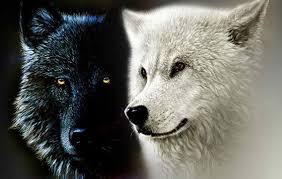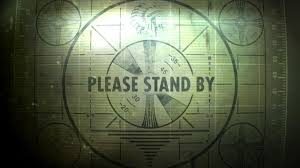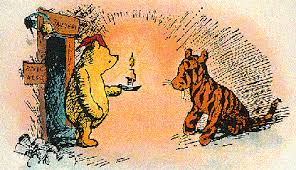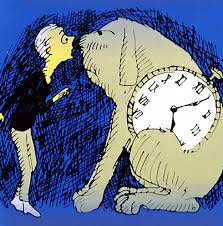 My erudite readers may be familiar with this Cherokee parable:
My erudite readers may be familiar with this Cherokee parable:
An elder Native American was teaching his grandchildren about life. He said to them, “A fight is going on inside me. It is a terrible fight and it is between two wolves. One wolf represents fear, anger, envy, sorrow, regret, greed, arrogance, self-pity, guilt, resentment, inferiority, lies, false pride, superiority, and ego.
The other stands for joy, peace, love, hope, sharing, serenity, humility, kindness, benevolence, friendship, empathy, generosity, truth, compassion, and faith.”
“This same fight is going on inside you, and inside every other person, too”, he added.
The Grandchildren thought about it for a minute and then one child asked his grandfather, “Which wolf will win?”

Don’t touch that dial! We interrupt our regularly scheduled allegory for the following polemic. The Grandfather’s answer to “Which wolf will win?” is at the end of the essay.
Could there be a more appropriate metaphor for raising healthy children in this toxic culture? Which wolf will win? Let’s start small and see if we can determine where it is possible to go off track. You feed your baby mashed sweet potatoes. If she communicates a preference for peas—the bits of slobbery mashed sweet potatoes projectiled into your hair are the communication; the medium is the message!—then you follow her lead and help her figure out which nutritious option she prefers. Mashed sweet potatoes are okay; peas could work. Either way. But you don’t switch from mashed sweet potatoes to vodka. No responsible parent gives alcohol to an infant under any circumstances ever. Duh.
Blink your eyes: Your baby is now a toddler. If she prefers Winnie the Pooh to The Phantom Tollbooth, you let her choose bedtime reading. Both Tigger and Milo stimulate a child’s imagination on more levels than neuro-psychologists can count. Ye Little Wood and Dictionopolis are awesome. A. A. Milne and Norton Juster are both magnificently appropriate. But you don’t present 50 Shades of Dreck as an alternative. Ages and stages. Loving parents present choices. Within acceptable parameters. No books for your children about people tying each other up and having sex. Again, duh.

Turn around. Now she can read on her own. You fill the house with Shel Silverstein’s ABZ Book, The Silly Book and a bunch of other great reads. Here is a link to some two-hundred books for children.
These books have won awards. It would be hard to argue which of these books are “better” than others. All are excellent. But I would welcome the opportunity to engage with you in such an argument. Which books are better? Come on over and let’s discuss. Any excuse to read children’s literature works for me. Let’s order take-out and talk long into the night about which of the books on this list are our favorites and why.

Can you imagine a child in this country being graduated from middle school without having read Shane or Sounder? I’ll take Jack Schaefer’s insights into the Western United States and William Armstrong’s perception of civil rights in the depression over a year-long US history course any day. Your children will have a deeper understanding of Napoleonic Europe from absorbing Pride and Prejudice than from memorizing a list of monarchs or presidents.
Whereas Rabbit Hill, A Wrinkle in Time, Across Five Aprils, Shadow of a Bull, and Island of the Blue Dolphins may not teach anything other than a love of language, a fascination with faraway places real and imagined, and an eagerness to know about this world and others. Not altogether bad things come to think of it.
Here’s a book I missed growing up and one that I didn’t read to my kids: The Tale of Despereaux: Being the Story of a Mouse, a Princess, Some Soup, and a Spool of Thread by Kate DiCamillo, illustrated by Timothy Basil Ering. The title alone is enough to make me want to send my four adult children a pamphlet on reproductive biology. It’s about time somebody started figuring out how to give me grandchildren. I am desperate to read aloud again to a wide-eyed child. But I digress. Back to the books; back to choices; back to wolves.
I read Jack London’s Call of the Wild out loud to my children. Maybe they were too little, but we were camping and we were cold and it seemed like a suitable choice. Maybe my daughter was grouchy—did I mention that I forgot to pack enough warm clothing and we spent much of the weekend huddled by the fire?—or maybe Call of the Wild just wasn’t age appropriate. Admittedly characters fall through the ice, get clubbed, freeze, and starve. My daughter’s snarky insight: “Great book, Dad. Everyone you care about dies.” I would gladly spend another three days freezing my tush off in return for a comment like that. Twenty years later, “Great book, Dad. Everyone you care about dies” still cracks me up.
If you don’t have time for reading to your kids each and every day of their lives, something is desperately wrong. “We mean to spend a few minutes reading to our kids but the day is just so full and by the time we return home from soccer games in the next county and get homework done, there just isn’t time for cuddling up with a good book.” I get it. Who am I to judge? Here’s a similar argument: “We had every good intention of having some fresh vegetables with our meal but instead decided to spend the dinner-hour repeatingly stabbing ourselves in the eye with a fork. Then my nine-year-old wanted some vodka so we knocked back a couple quarts.” Fair enough. Just so you’re up front with your decision-making. Because I know any number of productive, well-adjusted adults who can’t distinguish soccer from disco balls; whereas the “Society for the Promulgation of Illiteracy” is once again having trouble attracting contributions. You heard it here first: your child is not going to make a living or make a life playing soccer. She may attract some friends on the pitch; she may even get a scholarship to a division one college (don’t mortgage the farm*.) Whereas she definitely needs to look back on the nurturing immersion of language that snuggling on the couch with books and parents provides. Nothing wrong with soccer, but books have to come first.

Nutritious baby food over vodka. Books taking precedence over sports. What could be so simple? The opportunities to choose well start with newborns and continue on to when the children’s peers become more important than their parents.
We now return you to our regularly scheduled parable.
“This same fight is going on inside you, and inside every other person, too,” he added.
The Grandchildren thought about it for a minute and then one child asked his grandfather, “Which wolf will win?”
The old Cherokee replied… “The one you feed.”
* She may also win marry a professional shepherd while standing on one foot and being struck by lightening on a Thursday afternoon. Not a lot of soccer scholarships out there.


